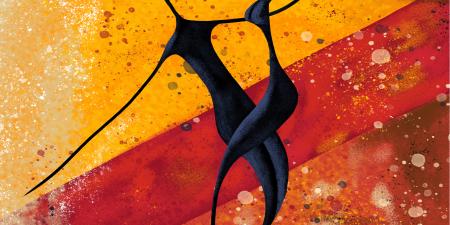Case
Mr. and Mrs. Delgado had been closely involved in the treatment decisions and medical care of their 11-year-old son, Tony, since he was diagnosed with acute lymphocytic leukemia (ALL) at age 10. Both parents are teachers. During Tony's initial hospitalization, they alternated missing work; one's class would have a substitute teacher, then the other's would. One parent was always by Tony's side. The Delgados studied ALL so as to understand Tony's symptoms, their physiologic causes, and the blood levels that indicated how well Tony's treatment was working. They insisted on seeing all lab reports and discussing them with Tony's oncologist, Dr. Carmichael.
Dr. Carmichael supported the Delgados' endeavors from the beginning. He believed in educating his patients (or their parents) about whatever type of leukemia affected them, explaining his actions and decisions in as much detail as his listeners could absorb. Because either Mr. or Mrs. Delgado was always at the hospital, the Delgados' participation had never caused delay in Dr. Carmichael's decision making.
Tony had been in remission for 5 months when Mrs. Delgado took him to Dr. Carmichael, saying that he had a fever and flu-like symptoms. The history corroborated Mrs. Delgado's flu diagnosis, and Dr. Carmichael got a CBC and smear and ordered a peripheral blood culture, all of which were normal. Because of the viral flu explanation for Tony's fever, Dr. Carmichael suggested no antibiotic treatment and no hospitalization at the present. The Delgados disagreed, fearing that Tony's fever and fatigue signaled the return of an acute flare-up in the ALL. Dr. Carmichael cited recent pediatric hematology and oncology literature in support of his treatment decision. He advised that they watch Tony for the next few days and, if his flu resolved, wait until the next routine blood test in about 6 weeks before taking any further action. He had seen many children like Tony, he told the Delgados, and, in his judgment, the more time they spent at home living normal lives, the better.
During the discussion, the Delgados mentioned that both had used all their available personal time off during Tony's prior hospitalizations and would have to have someone else stay at home with him. They thought he would be better off in the hospital under professional care. Again Dr. Carmichael offered his medical judgment on the issue, mentioning that hospitalization carried an increased risk of other infections as well as psychological trauma for Tony. The Delgados said they didn't care much about other patients or "the literature." Tony was their son, and they wanted the best care for him. They believed the best care was hospital care. After working so well together for almost 2 years, Dr. Carmichael and the Delgados seemed to be at an impasse.
Commentary 2
Can a physician be compelled to provide care he or she thinks is unnecessary? Does the patient-physician relationship obligate the participants to anything more or less than strict scientifically based therapy? Can a spiritual approach influence the resolution of this problem? These questions are the crux of this bioethical dilemma.
Let us deal with the first question. Should a physician offer or render care that is not indicated or necessary? The American Medical Association Code of Medical Ethics answers this question succinctly in Opinion 8.20 on Invalid Medical Treatment. It states that treatments with no medical indication should not be used. It goes on to say that even in treatments that are medically indicated, if the treatment is regulated (such as precertification for hospital admission) the physician should abide by those regulations. Opinion 2.19, Unnecessary Services, states that physicians should not provide services they know are unnecessary.1,2 In this case, Dr. Carmichael has performed a workup to assess whether there is an indication for specific therapies such as antibiotics or in-hospital observation. Finding none, he is being ethically responsible in the therapy he does recommend, namely observation at home and scheduled follow-up lab tests. Even if he were willing to treat the patient with antibiotics and hospitalization, he would likely have to "game the system" to acquire precertification. This would be dishonest and wasteful of medical resources, not to mention legally fraudulent.
How Close a Relationship?
The second question is not so easily answered. The case scenario intimates a close patient-physician relationship between Dr. Carmichael and the Delgados. Dr. Carmichael has done much to empower the Delgado parents to participate in care and decision making. A problem is now encountered when that high level of participation results in a disagreement about care and may threaten the entire relationship built up over 2 years. We must remember the Delgados' perspective in this issue. Parents of pediatric cancer survivors will typically have increased anxiety over even trivial medical problems. As a pediatric surgeon, I have examined my share of completely normal lymph nodes in patients who are in remission from lymphoma because the parents were sure it was a recurrence. Knowing that these parents have a distorted perspective3 is not enough. We have to deal with it in some way.
One way to address the problem would simply be to tell the parents they are overreacting. This would avoid unwarranted medical treatment but would not resolve the tension between patient and physician. Bernard Häring describes the patient-physician relationship as a tie that is a covenant of persons.4 This type of binding relationship does, I think, obligate the physician to treat not only the leukemia but also the parents' anxiety. If Dr. Carmichael can sympathetically listen to the Delgados' anxiety, he may be able to alleviate some of their fears and bring them to a point where they can release their perspective (to some extent at least) and follow the more detached medical advice of their doctor.
Maybe the doctor could help empower the parents in the treatment option that is appropriate. A daily telephone call from Dr. Carmichael and earlier follow-up of lab tests might ease the parents' anxiety and help them feel plugged in to the system even if they are at home. Perhaps the doctor could intervene at the school to allow some additional time off for 1 of the parents to watch their child.
Finally, how might a spiritual approach influence the resolution of this problem? Encouraging the parents to talk to someone in the realm of counseling or religion, someone they trust, might help to relieve their anxieties. If appropriate, expression of common faith (whether Christian or not) could serve to realign the parents' perspective to a bigger picture that would at least help them feel less isolated and out of control, although it might not resolve the conflict.
References
-
Opinion 8.20 Invalid Medical Treatment. AMA Code of Medical Ethics 2002-2003 Edition. Chicago, IL: American Medical Association; 2002.
-
Opinion 2.19 Unnecessary Medical Services. AMA Code of Medical Ethics 2002-2003 Edition. Chicago, IL: American Medical Association; 2002.
-
Lebacqz K. Empowerment in the clinical setting. In: McKenny GP, Sande J, eds.Theological Analysis of the Clinical Encounter. Dordrecht: Kluwer Academic Publishers; 1994:133-147.
-
Häring B. Medical Ethics. South Bend, Ind: Fides; 1973:199-205.



